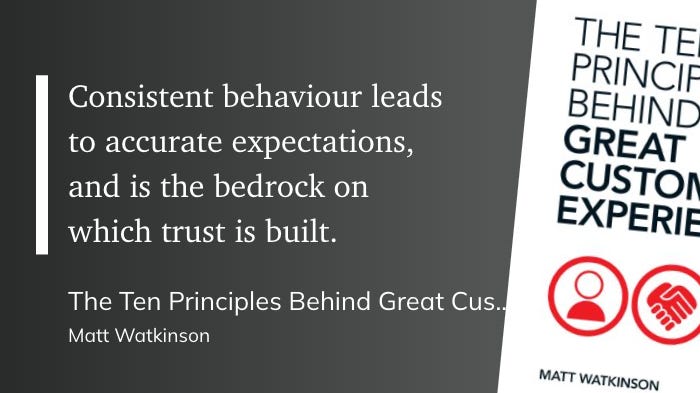You can listen to the main article in this newsletter (read by me).
Happy New Year everyone,
For many disabled people, the simple act of planning a journey or booking a ticket can quickly spiral into an administrative burden. What non-disabled people do with three mouse clicks - booking a hotel room, a seat reservation on a train, or a cinema ticket - is a call or an email or two or three for disabled people. And when many companies expect a call or two or three, filling out a booking form or jumping through other hoops before disabled people can participate, it gets pretty time-consuming.
These processes create unnecessary hurdles and frustrations. Before the New Year, the BBC highlighted this issue of “disability admin” in an article.
The Hidden Burden of Disability Admin
Take train travel, for example. Disabled passengers who need assistance boarding or alighting must often book this in advance. It adds additional planning and uncertainty. And when they have booked assistance, that doesn’t automatically mean that the wheelchair space is also booked. LNER does it well; East Midlands, not so much.
For years, I try to avoid hotels that don’t let me book their accessible room online. It’s not the same customer experience if the rest of the world is booking online or through their app, and I have to call or email. I also then have the disadvantage that these conversations about the accessible room are not even legally binding, especially abroad, and it’s a lottery if I get the accessible room in the end. Even calling the hotel isn’t a guarantee that the accessible room is available—or worse, to discover that the room labelled as “accessible” doesn’t meet basic accessibility standards because I wasn’t able to see photos of the room while non-disabled people can see the standard of their rooms on photos.
Theatres and concert venues present yet another challenge. While most people can purchase tickets online, wheelchair users often have to call the box office to secure accessible seating. This process can involve long wait times, limited availability, and the uncomfortable feeling that they don’t want you there. A best practice example is the Southbank Centre in London. Booking tickets there takes 30 seconds online, and I can even pick which wheelchair space I want. No phone call, no faff.
Why This Needs to Change
These barriers aren’t just inconveniences—they’re a form of exclusion. They reinforce the idea that disabled people are an afterthought and no valuable customers. This impacts disabled people’s ability to participate fully in society and creates feelings of isolation and frustration.
Inclusive design is about creating processes that work for everyone. Digital systems, in particular, have the potential to improve accessibility—if they’re built with disabled users in mind. It even saves the business’s effort and money to serve them. It’s a matter of procurement when it comes to booking systems and mandatory requirements when systems are rolled out.
A larger issue
The current state of disability admin is a symptom of a larger issue: a lack of understanding and prioritisation of accessibility and having poor processes in place. But change is possible. By listening to disabled voices and involving them in the design of systems and processes, it’s possible to create a world where accessibility is the default, not an afterthought.
I was in a hotel once where the hotel manager called me after I had arrived and told me that I was the first wheelchair user in this hotel after a refurbishment and if I could give her feedback after my stay. I did, and I stayed in touch with her for years. Another hotel manager asked me why I booked his hotel, and I told him - because I could book the accessible room online and legally binding. He was stunned. I showed him hotels of the same chain where the accessible rooms weren’t listed online, but I knew they had some. He promised to let his colleagues know.
Accessible transport and travel shouldn’t come with extra hoops to jump through. It’s time to break down these barriers and build a future where everyone can travel without unnecessary admin.
Some interesting links
The US Transportation Department has expanded the rights of disabled airline passengers, including better customer assistance and providing more support when wheelchairs and other aids are damaged or delayed. Here is the official press release.
If anyone still thinks overlays that promise to make websites accessible are a good idea… the US Federal Trade Commission will require software provider accessiBe to pay one million dollar to settle allegations that it misrepresented the ability of its AI-powered web accessibility tool to make any website compliant with the Web Content Accessibility Guidelines (WCAG) for disabled people.
UK Rail minister Lord Hendy has spoken out against the sector’s current approach to accessibility on the rail network and has challenged it to find more cost-effective methods than “pairs of lifts and a bridge”. Beaming? A crane? A sedan chair?
Something to watch
Lucy Edwards, a blind influencer, tested a talking bus stop real-time timetable.
Some final words
The Accessible Link is a reader-supported publication. So, if you like what you’re reading, consider to
As a paid subscriber you will receive an additional edition every two weeks with best-practice tips on improving accessibility in your organisation.
Who is writing this newsletter?
I’m Christiane Link, and I improve the customer experience in aviation, transport, and travel. I worked as a journalist for over two decades and travelled extensively for business and leisure. I’m a wheelchair user.
Work with me
Whether you're a Customer service director, a Head of Customer Experience, a corporate Accessibility manager, a DEI leader, a transport planner, or a disabled employee resource group member, I can help you to make your organisation more inclusive. You can book me for speaking engagements or hire me as a consultant for your accessibility or DEI strategy, communications advice and other related matters. I have worked for airlines, airports, train operators, public transport providers, and companies in other sectors.
If you want to read more from me, follow me on LinkedIn, Twitter, Bluesky or Mastodon. You can also reply to this email if you want to contact me.
.





